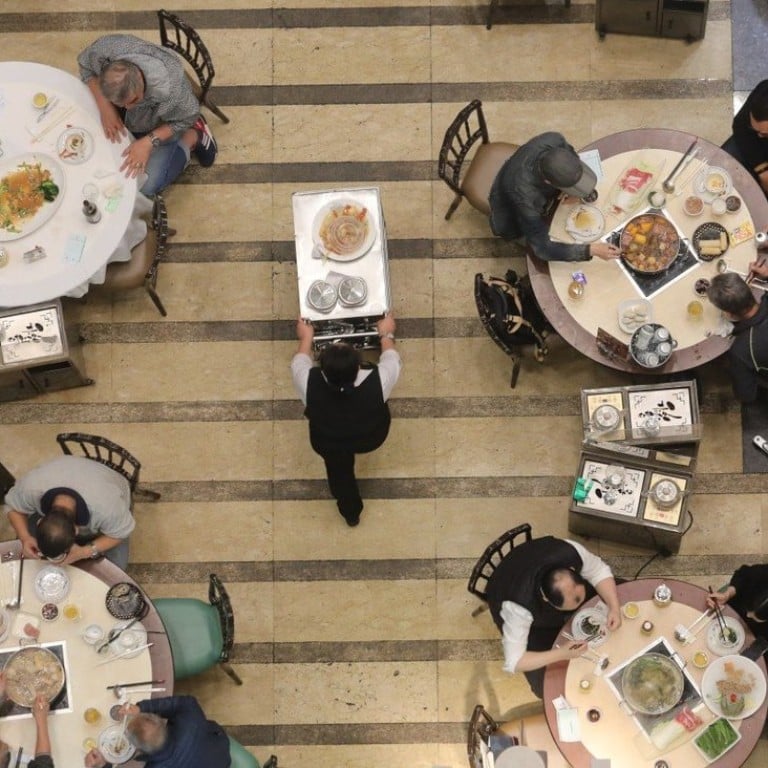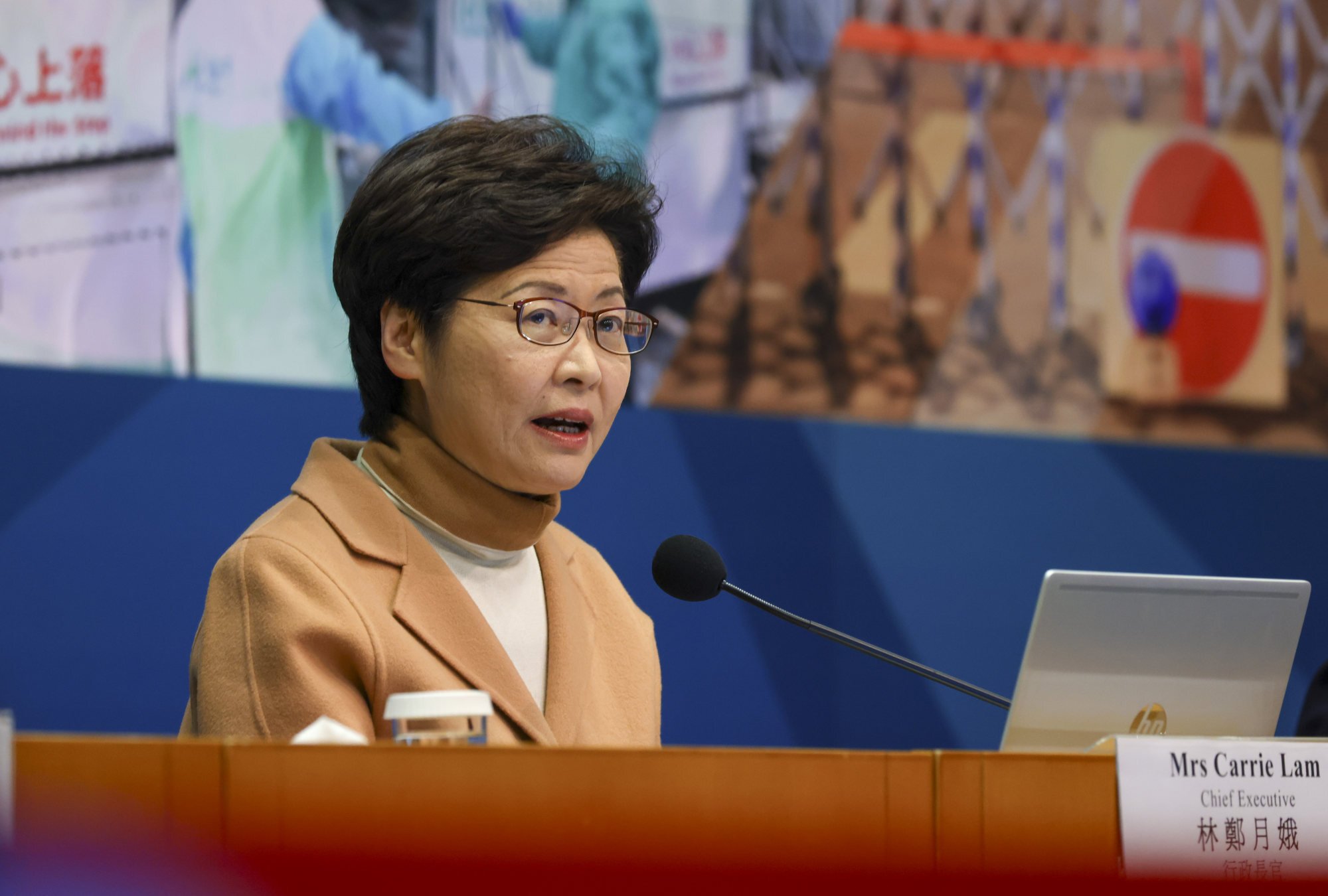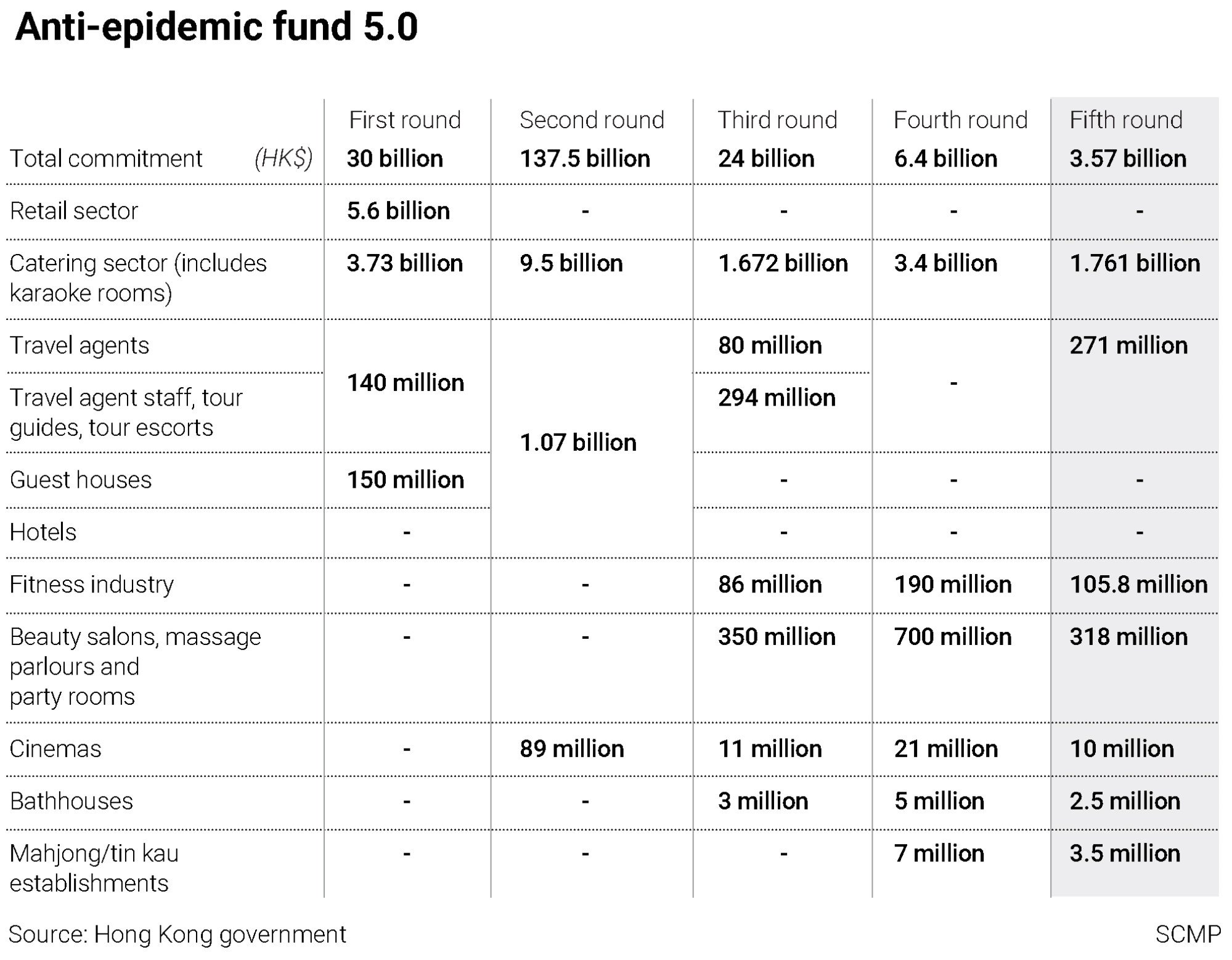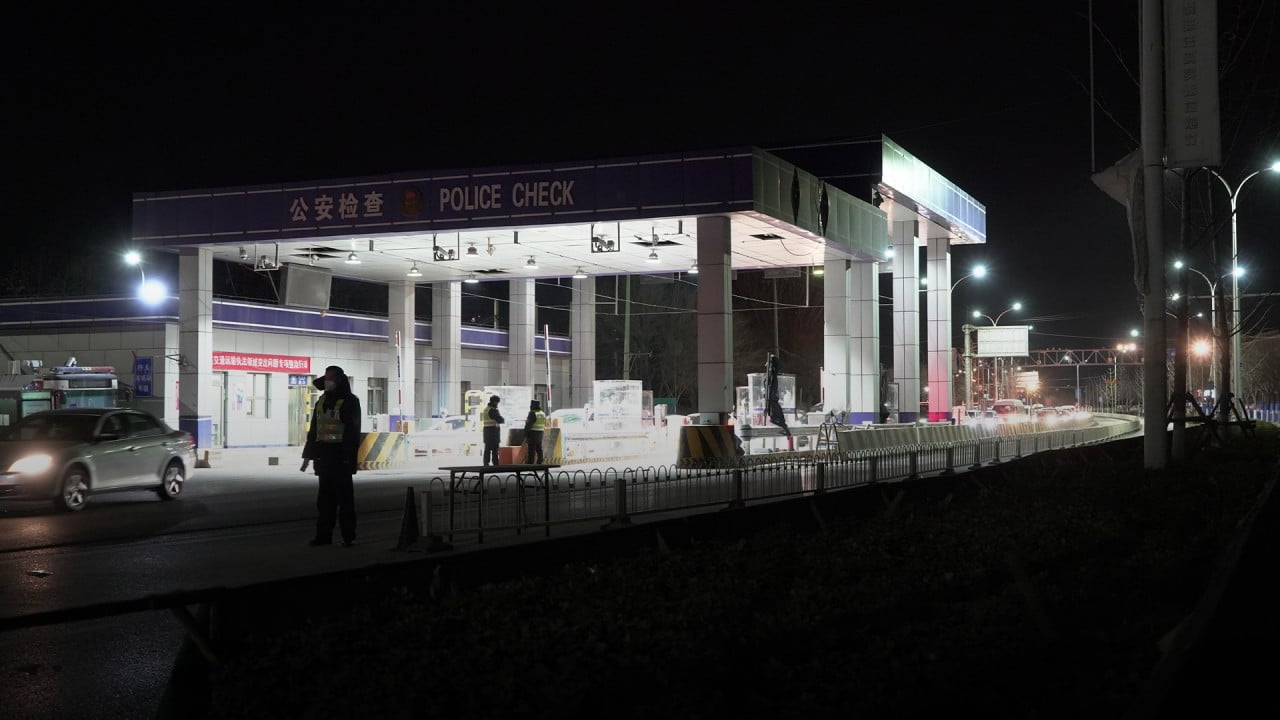
Coronavirus: Hong Kong extends stricter social-distancing measures, flight ban on 8 countries through Lunar New Year, will provide HK$3.57 billion in subsidies to hard-hit businesses
- Measures announced by Chief Executive Carrie Lam will last through the Lunar New Year holiday season and put a damper on festivities
- Flight ban currently imposed on Australia, Canada, France, India, Pakistan, the Philippines, Britain and the United States will also be extended to February 4
Key points:
– Social-distancing rules to be extended until February 4, including restaurant dine-in ban after 6pm and closure of 15 types of premises
– Flight bans imposed on Australia, Canada, France, India, Pakistan, the Philippines, Britain and the United States will also be extended until February 4
– Fifth round of subsidies worth HK$3.57 billion to help hard-hit industries
The measures announced by Chief Executive Carrie Lam Cheng Yuet-ngor on Friday, confirming earlier reports by the Post, will last through the Lunar New Year holiday season and put a damper on festivities amid a worrying outbreak of the highly transmissible Omicron variant of the virus.
Flight bans currently imposed on Australia, Canada, France, India, Pakistan, the Philippines, Britain and the United States would also be extended until February 4, Lam added. The bans were first introduced on January 8.
With the measures in place, Lam said, she was still hopeful about the long-awaited reopening of the border with mainland China, which has been stalled by the current Omicron outbreak.
“The latest assessment is Covid-19 is not yet under control, there’s still a risk of a large-scale outbreak,” Lam said. “If there is no major outbreak on February 4, we will restore business operations but they will be subject to vaccination requirements.”
‘Too early’ to declare Omicron outbreak under control; Hong Kong confirms 9 cases

Since Hong Kong’s first Omicron infection on December 30 last year, 60 people have been infected locally by the variant and 4,700 people sent into compulsory quarantine at the government-run Penny’s Bay camp.
Responding to complaints about chaotic arrangements and other problems people had faced under the government’s “zero-covid” policy, Lam said: “I need to apologise to the residents who had unpleasant experiences during Covid-19 testing, contact tracing and compulsory quarantine on behalf of the government.
“I hope they can understand that we have already mobilised a lot of manpower to contain the Omicron outbreak but unfortunately we still cannot keep everyone satisfied.”
Omicron less severe even for unvaccinated, South Africa study finds
The city confirmed nine Covid-19 infections on Friday, which took the tally to 13,025 cases, with 213 related deaths.
As for the fifth round of government subsidies for businesses in need, Lam said applications for the HK$3.57 billion relief package being offered this time would open as soon as next week with the focus on two groups.
The first group would include businesses directly affected by the latest restrictions, such as restaurants not allowed to offer dine-in services beyond 6pm and beauty industry outlets. Hard-hit individuals such as gym instructors, coaches and freelance artists would also be covered in this group, along with childcare and education-related firms including schools, tutorial centres and school bus companies.

The second group covers industries that have remained “frozen” during the pandemic, such as the tourism sector and cross-border transport.
The subsidies will be distributed based on the previous criteria so, for example, licensed bars and restaurants of up to 100 square metres (1,076 sq ft) will receive HK$50,000 while HK$100,000 will be offered to those between 100 and 200 square metres.
Catering sector lawmaker Tommy Cheung Yu-yan, a member of Lam’s Executive Council, said he was extremely disappointed by the subsidies on offer, calling them a drop in the bucket compared with the more than HK$10 billion revenue forgone over the month.
“How can we settle rents, wages, supplier bills?” he said.
Licensed stall operators dealt a heavy blow from the cancellation of Lunar New Year fairs would be offered subsidies equivalent to half of stall fees.
Secretary for Food and Health Sophia Chan Siu-chee said an evaluation of the overall risk of outbreaks prompted the decision to axe the fairs.
“We know vendors have prepared many flowers for the festival, but markets will create crowds that raise infection risks,” she said.
About 6,000 freelancers in the arts and culture sector, 13,000 registered sports coaches and 6,000 instructors in special interest classes are eligible for a HK$5,000 subsidy. With all performing events and concerts cancelled, about 80 organisers will be able to claim HK$50,000.
A big chunk of the funding, HK$760 million, is earmarked for the tourism sector, with subsidies available for travel agents, tour guides and escorts, and coach drivers, as well as operators of cross-border shuttle buses, hired cars and ferries, and providers of aviation support services. But hotels and guest houses were left out this time unlike previously.
Tour firm Walk in Hong Kong co-founder Paul Chan Chi-yuen said the company was eligible for a HK$50,000 subsidy but curbs meant he had to cancel 30 local tours and lost HK$200,000 in revenue in January – one of the best months in the past two years.
“It is not sufficient to cover the losses. To be more practical, the government should tell us its blueprint on social-distancing policy and lift the ban as fast as it imposed it,” he said.
The government has committed some HK$201.4 billion in subsidies covering more than 20 industries affected by pandemic-related rules since 2020.
The chief executive, meanwhile, said she would like to see primary schools and kindergartens, which were told to suspend face-to-face classes until after the Lunar New Year holiday, reopen following the break but she refused to give any guarantees.
Ruling out vaccine mandates for children, Lam said: “We will honour a child’s right to be educated at school, but we will do all our best to encourage and promote vaccination among young children for their own sake.”
Offering his assessment of the local Covid-19 situation, Director of Health Dr Ronald Lam Man-kin told the briefing the city was still “near the crater of a volcano and not away from it yet”.
Lam said more than 80 per cent of local patients infected with Omicron had a high viral load and infectiousness, while 30 per cent were asymptomatic, meaning they could cause silent transmission in the community if undetected.
The median age of Omicron patients in the city was 50, showing older people were particularly susceptible to the variant, Lam warned.
“The elderly should get vaccinated and residents should avoid cross-family gatherings and crowded places during Lunar New Year,” he added.
Additional reporting by Elizabeth Cheung and Sammy Heung




